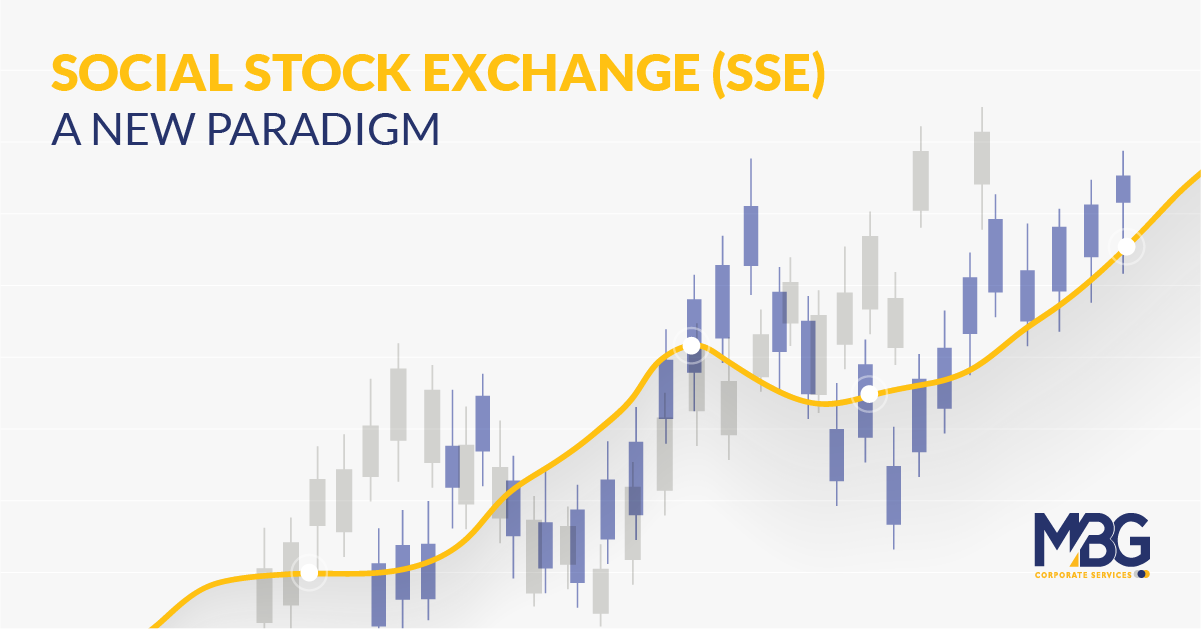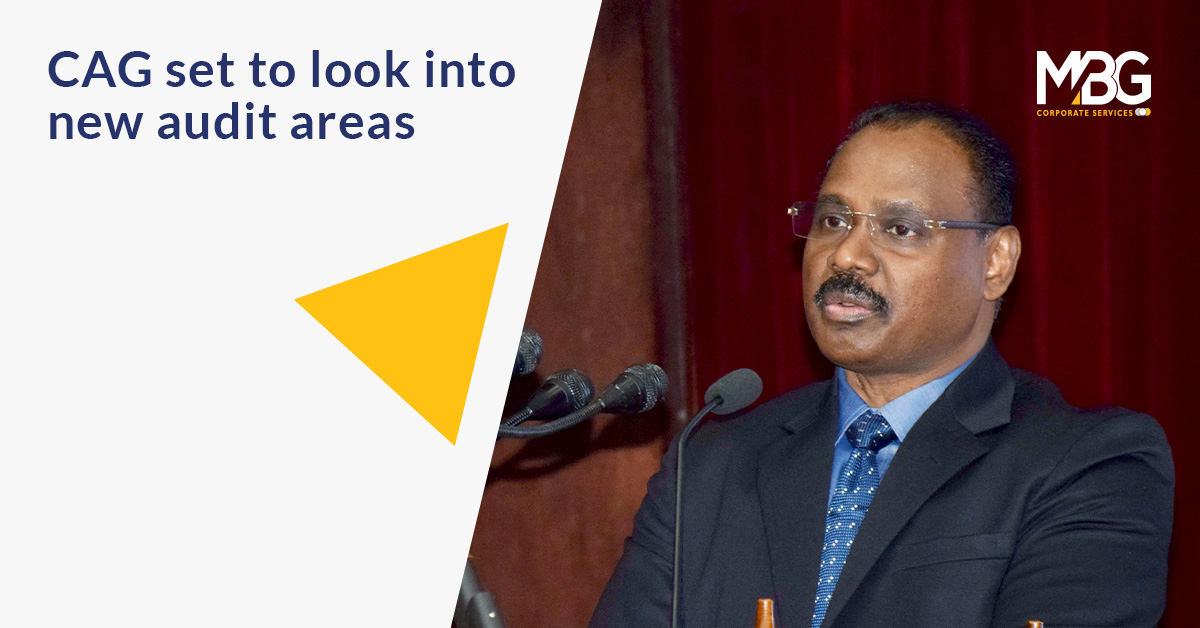Social Stock Exchange (SSE) – A New Paradigm
March 31, 2023

Abstract: -
Social finance is considered to be the mainstream problem in India for goods and services, which targets the disadvantaged and poorer section of society. India has one of the largest NGO sectors in the world. The country has more than 33 lacks registered NGOs compared to 11 lacks registered corporate. The SSE would function as a separate segment within the existing stock exchange and help social enterprises raise funds from the public through its mechanism.
A social stock exchange (SSE) is a platform on which social enterprises, volunteer groups, and welfare organizations are listed so that they can raise capital. This is a revolutionary concept to provide an avenue to these organizations so that they can approach and tap the reservoir of investors for capital. We all are aware that one of the main concerns of society has been to remove poverty and transfer the benefits of economic growth to the last person in the line.
Introduction: -
The Social Stock Exchange (SSE) in India has been proposed by the Union Minister of Finance and Corporate Affairs, Smt. Nirmala Sitharaman, while presenting the Union Budget 2019-20 in Parliament and the Board has subsequently approved the creation of such an exchange with the objective, to take capital markets to the masses. Specifically, organizations working towards social welfare, in order to make it easier for them to raise funds. SEBI granted its final approval on 27th December 2022, for introducing Social Stock Exchange (SSE) as a separate segment on BSE, and subsequently, the final clearance was received on 22nd February 2023 as confirmed by the National Stock Exchange (NSE).
Globally, countries like Brazil, Portugal, South Africa, Jamaica, the UK, Canada & Singapore already have established Social Stock Exchanges (SSE) in their respective countries.
Key Concept of SSE: -
Proposed Mechanism for Fund-Raising in SSE: -
Social Stock Exchanges aim to effectively deploy fundraising instruments and structures available under specified guidelines. These instruments depend on the nature of social enterprises seeking funding. The instruments are different for NPOs and for-profit enterprises
Vide notification dated July 25, 2022, SEBI (Issue of Capital and Disclosure Requirements) Regulations, 2018 (“ICDR Regulations”), SEBI (Listing Obligations and Disclosure Requirements) Regulations, 2015 (“LODR Regulations”) and Securities and Exchange Board of India (Alternative Investment Funds) Regulations, 2012 (“AIF Regulations”) were amended to provide a broad framework for Social Stock Exchange.
Eligibility: -
Any non-profit organization (NPO) or for-profit social enterprise (FPSE) that establishes the primacy of social intent would be recognized as a Social Enterprise, which will make it eligible to be registered or listed on the SSE.
Non-Eligibility: -
A social enterprise does not include corporate foundations, political or religious groups, professional or trade associations, or infrastructure companies, except affordable housing.
Activities that are permissible: -
• Social businesses can work to eliminate hunger, poverty, malnutrition, and inequality, as well as promote health care (including mental health) and sanitation, and provide safe drinking water. • To build sustainable and resilient cities, slum area development, affordable housing, and other interventions are needed. • Promoting rural and urban poor livelihoods, particularly increasing the income of small and marginal farmers and non-farm workers. • Environmental sustainability, climate change mitigation, adaptation, and forest, and wildlife conservation are all priorities. • Gender equality, women's empowerment, and LGBTQIA+ groups are all promoted. • Education, employability, and livelihoods are all promoted.
Disclosure Requirements for fundraising: -
Non - Profit Organizations
• Annual disclosures on the General aspects, Governance aspects, and Financial aspects within 60 days from the end of the financial year or within Board specified period. • Furnish a Statement of Utilization of Funds on a quarterly basis viz within 45 days from the end of the quarter, till the time issue proceeds have been fully utilized or the stated purpose has been achieved.
Profit Organization
• Compliance with the disclosure requirements specified in the Securities and Exchange Board of India (Issue of Capital and Disclosure Requirements) • Regulations, 2018 pertaining to the issuers whose specified securities are listed on the Main Board or the SME Exchange or the Innovators Growth Platform, as the case may be.
Social Enterprises
• Disclose any event that may materially impact their planned achievement of outputs or outcomes to the Social Stock Exchange(s) or Stock Exchange(s) where it is registered or has its specified securities listed, maximum within seven days or within Board specified period from the occurrence of such events. • Submit an Annual Impact Report (AIR) capturing the qualitative and quantitative aspects of the social impact generated by the entity including the impact generated by the project or solution for which funds have been raised in Board specified format, duly audited by a social audit firm employing a social auditor. Such a report is required to be furnished within 90 days from the end of the financial year.
Instruments: -
For Non-Profit Social Enterprises: - • Zero Coupon Zero Principal Bonds (ZCZPB) • Social Venture Funds (SVF) • Mutual Funds (MF)
For Profit Social Enterprises (FPEs): - • Equity Listing • Social Venture Funds (SVFs)
Benefits of Social Stock Exchange: -
Building an ecosystem that will enable the SSE to thrive and flourish in India will give the following benefits: - • Social Impact Reporting - Social Impact Reporting Common minimum standards for reporting on social impact have been suggested for both classifications (FPEs and NPOs), to reduce information asymmetry. The working group also suggests operating a “capacity building fund” for enhancing reporting capabilities by NPOs. Over time, it is also envisaged that a new category of auditors—social auditors—will perform independent verification of NPOs’ impact reporting.
• Tax Benefits & Exemption - To increase the reception of these funding models amongst various classes of investors, the committee has also recommended several tax exemptions, benefits, and other supportive regulatory clarifications.
• Rigorous Regulatory Scrutiny - Listing of FPEs on the SSE must not be based only on self-reporting social impact. To ensure that only bonafide FPEs are able to associate with SSE, SEBI, in consultation with the existing specialist entities, should work out a mechanism for assessing the credentials of the social impact dimensions self-declared by the FPEs.
• Upliftment of Social Enterprises – The SSE will enable the routing of grants to nonprofits in a variety of ways and help aggregate donations from multiple individual donors. This is helpful in the adaptability of ever-changing technologies, creating opportunities and improving the existing processes of enterprises, and building efficiency and the social well-being of people, thereby enhancing value for all.
Conclusion: -The introduction of Social Stock Exchanges undeniably is a welcome step in the securities market that would improvise the visibility and knowledge, of all the stakeholders, especially funders, issuers, and customers of such social enterprises. These stock exchanges are anticipated to bridge the funding gap for such social enterprises thereby creating the necessary social investment ecosystem so as to maximize the positive social impact and place the environmental, social, and governance (ESG) features within the pursuit of profits and growth.








